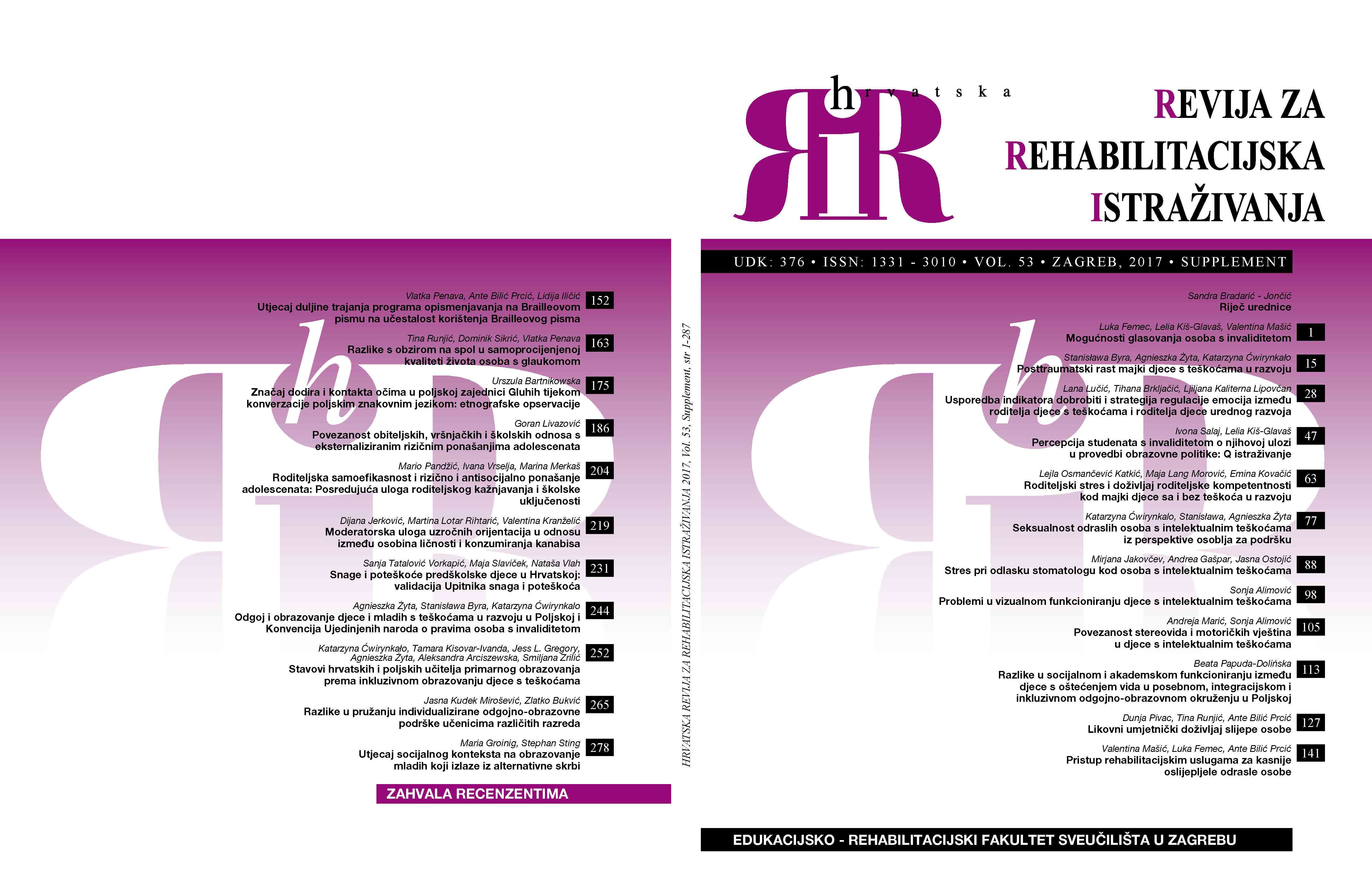Roditeljski stres i doživljaj roditeljske kompetentnosti kod majki djece sa i bez teškoća u razvoju
Parenting stress and a sense of competence in mothers of children with and without developmental disabilities
Author(s): Lejla Osmančević Katkić, Maja Lang Morović, Emina KovačićSubject(s): Social Sciences, Education, Psychology, Family and social welfare, Inclusive Education / Inclusion
Published by: Sveučilište u Zagrebu, Edukacijsko-rehabilitacijski fakultet
Keywords: Parenting stress; sense of competence; parenting satistaction; children; developmental difficulties;
Summary/Abstract: BACKGROUND: Mothers of children with a range of developmental disabilities report higher levels of stress than mothers of typically developing children. Higher levels of stress can also be related to parenting sense of competence. Further, parental stress and a sense of competence are also significantly associated with parenting support and marital satisfaction. AIM: This study had three aims: to determine the difference in stress levels and sense of competence observed as self perceived parental efficacy and satisfaction with parenthood in mothers of children with and without disabilities; to determine the relationship between stress levels and sense of competence observed as self perceived parental efficacy and satisfaction with parenthood in all mothers; and to determine the difference in importance of factors associated with motherhood stress and a sense of competence. METHODS: Mothers of 71 children aged 1-13 years from the city of Varaždin, 38 without disabilities and 33 with disabilities, participated in this study. The mothers filled in four assessment tools: the Parental Stress Scale; the Parenting Sense of Competence Scale, which included the two subscales of self-perceived parental efficacy and satisfaction with parenthood; the Family Support Scale; and the Quality of Marriage Index. RESULTS: Statistical t tests showed significant differences between mothers of children with and without disabilities in stress, and self-perceived sence of maternal efficacy, which was part of the sense of competence variable. Further, all explored variables were significantly correlated, and finally, all three models of four-stage hierarchical multiple regression revealed that final models containing sociodemographic factors, child characteristics, a disability factor, social support and marital quality explained 50.9% of the variation in parental stress level, 36.4% of variation in self-perceived parental efficacy, and 35.1% of variation in satisfaction with parenthood. Changes in R² were significant in all models. When all predictor variables were included in stage four of the regression model, marital quality explained the most variance in all models. CONCLUSION: These results show the importance of marital quality in both parental stress and a sense of competence equally in mothers of children with and without disabilities.
Journal: Hrvatska revija za rehabilitacijska istraživanja
- Issue Year: 53/2017
- Issue No: Supp.
- Page Range: 63-76
- Page Count: 13
- Language: English

